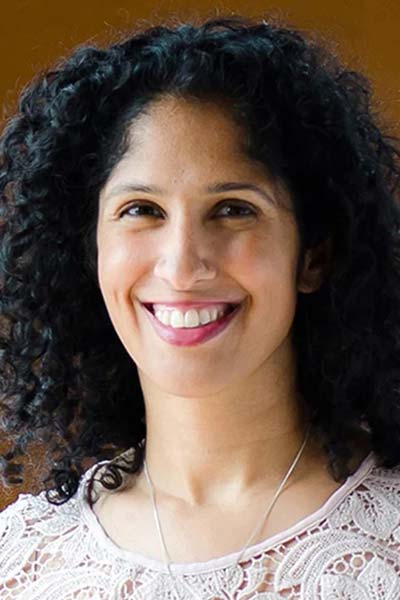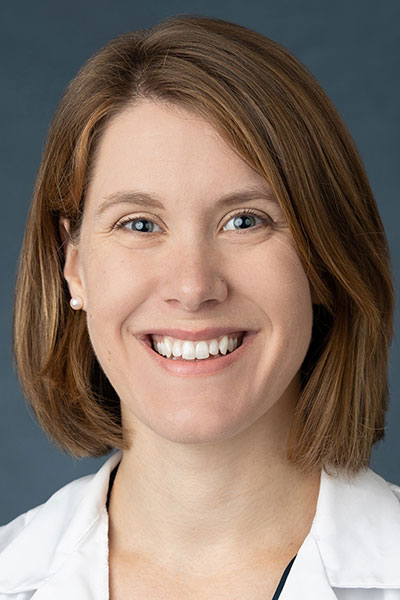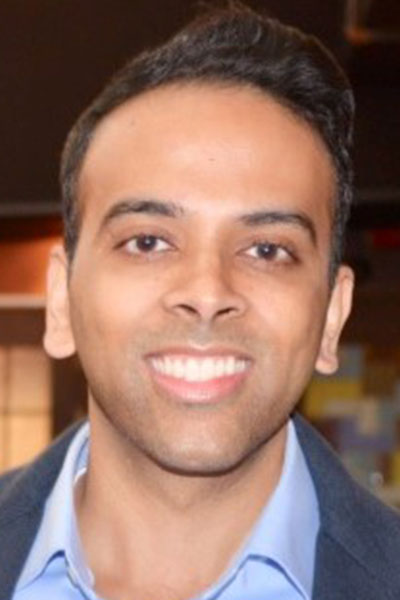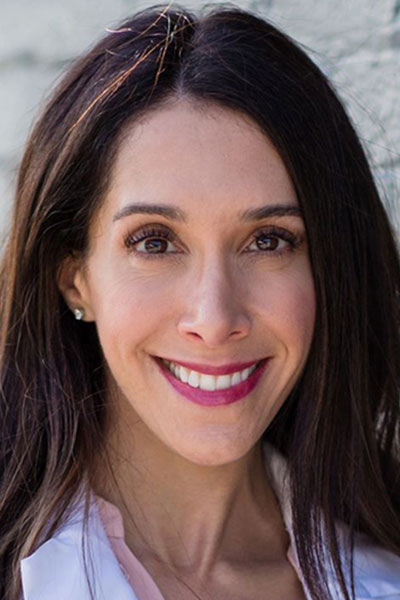
The annual Clinical Year in Review will continue Tuesday, May 23, with the third of four sessions highlighting the most impactful papers across pulmonary, critical care, and sleep medicine. Experts will discuss recent literature on asthma, sarcoidosis, sepsis, and sleep disorders in Clinical Year in Review 3 from 9–10:30 a.m. ET in Hall E (Level 2) of the Walter E. Washington Convention Center.
Vanessa McDonald, PhD, professor, University of Newcastle, Australia, will highlight the research priorities for experts studying asthma, as well as patients with asthma and their caregivers.
“It’s a really nice way to see where the gaps in the research are as perceived by the layperson,” said Clinical Year in Review Chair Rupal Shah, MD, MS, a pulmonologist and co-director of the Interstitial Lung Disease Program at the University of California, San Francisco.
Dr. McDonald will also present data from a randomized controlled trial of patients with poorly controlled asthma and highlight the best approaches for difficult-to-manage patients, as well as information on severe asthma.
“That’s a phenotype that we know is notoriously challenging to treat, so it will be really interesting to hear the recommendations,” Dr. Shah said.

Michelle Sharp, MD, MHS, who will review papers on sarcoidosis, said novel therapies are urgently needed for this disease, and new agents may be in the pipeline.
“One of the most exciting things I’m going to discuss is a new therapy, Efzofitimod (ATYR1923), for pulmonary sarcoidosis that showed promising early results in a phase two, randomized, double-blind, placebo-controlled study,” said Dr. Sharp, assistant professor of pulmonary and critical care medicine and co-director of the Johns Hopkins Sarcoidosis Program, Johns Hopkins School of Medicine.
She also will discuss a randomized controlled study that found 12 weeks of online mindfulness-based cognitive therapy significantly improved fatigue, anxiety, depression, mindfulness, and health status in participants with sarcoidosis-associated fatigue.
Multiple papers published in the past year on sarcoidosis also highlight the significant health disparities among socioeconomic status, race, and gender that exist among patients with this disease.
“Three of the six articles I’ll be highlighting investigate differences in exposures or outcomes between race, gender, or socioeconomic status (neighborhood disadvantage),” Dr. Sharp said. “As clinicians and researchers, we owe it to our patients to work together and achieve health equity in sarcoidosis.”

Sivasubramanium Bhavani, MD, assistant professor of medicine, Emory University, will review recent papers on sepsis, which is increasingly recognized as a major public health emergency affecting public policy. For the first time ever, the U.S. Congress dedicated part of the 2023 federal budget toward combating sepsis, which is responsible for one in five deaths worldwide.
A recurring theme in sepsis research has been the role of intravenous fluids, the most common intervention given to patients with this condition.
“Even though it’s such a common intervention, we still don’t know the right strategy with giving IV fluid,” Dr. Bhavani said. “Should we be really cautious and restrictive with how much fluids we give, or should we be more aggressive and liberal with fluids? This is an essential question that clinicians need to think about when treating patients with sepsis, and this is the central question in two major studies this year.”
He also will discuss selective decontamination of the digestive tract, an intervention that has been commonplace in ICUs in the Netherlands for more than a decade but is an emerging approach elsewhere.
“The concept is to prevent infections in mechanically ventilated patients by giving a combination of oral and IV antibiotics to selectively remove pathogenic organisms,” Dr. Bhavani said. “A major multicenter clinical trial along with a meta-analysis have shown convincing evidence supporting selective decontamination, and this may be an intervention we see gaining traction in hospitals around the world.”

Cathy Goldstein, MD, MS, professor, University of Michigan Sleep Disorders Center, will discuss significant papers on sleep medicine, including new developments in machine learning and the use of opioids.
“Machine learning analysis of polysomnograms can be used to identify novel metrics predictive of sequela, risks, and treatment response in patients with obstructive sleep apnea,” Dr. Goldstein said. “We are barely scratching the surface by using our legacy severity measure, the apnea-hypopnea index, and there is so much more we can learn from the data we already collect.”
New data also has been released on the tolerability and stability of dosing when treating refractory restless legs in patients with opioids.
“We are always hesitant to begin opioid medications, so it was reassuring to know that dose escalation and adverse effects are not a problem with use in this population,” Dr. Goldstein said.
Year in Review 4 will be Wednesday from 8–9:30 a.m.
Extend Your Learning Beyond San Francisco with ATS 2025 Conference Highlights

With so many valuable educational opportunities offered during the ATS 2025 International Conference, attendees are often forced to decide which sessions to prioritize. That’s why the Society is offering three ATS 2025 Conference Highlights packages for those unable to attend ATS 2025 San Francisco or attendees interested in continuing their education after the conference. Check out the packages and pick the one that’s right for you. Learn at your own pace, whenever and wherever you are!

